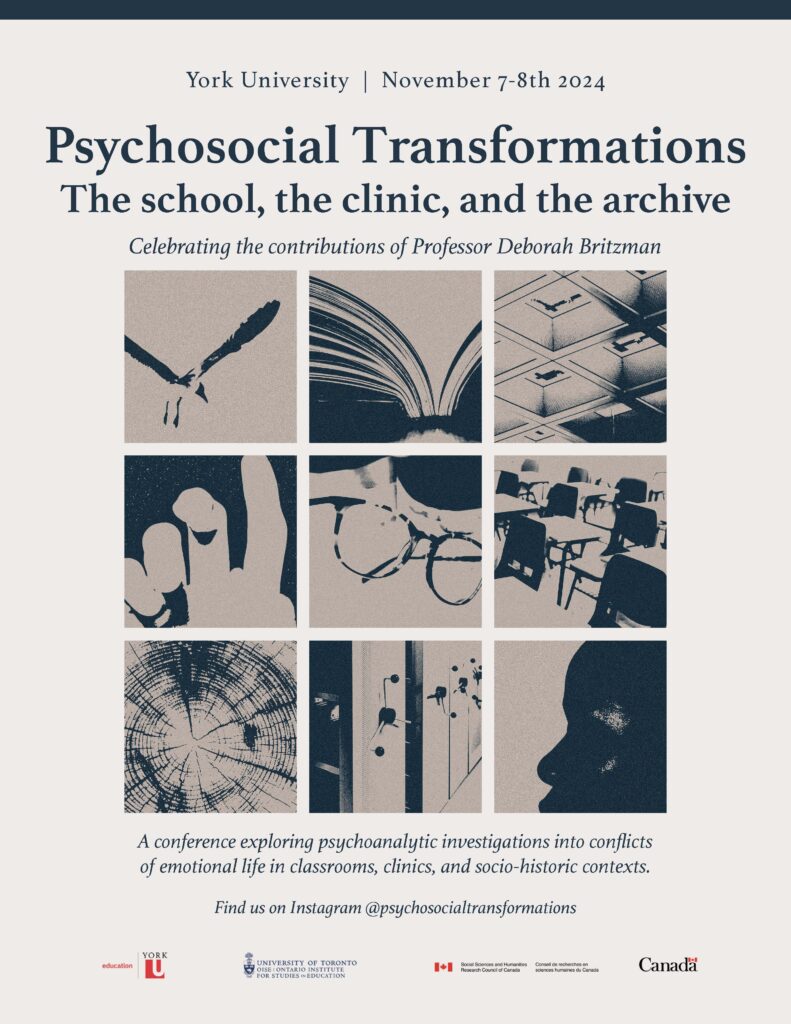
Organized by three York University professors, a two-day conference titled “Psychosocial Transformations: The School, The Clinic, and The Archive” will consider the connection between psychological and social change in challenging times, while honouring the impact that Distinguished Research Professor Deborah Britzman has had on the field.
The idea for the conference began with York professors Lisa Farley, Aziz Guzel and Jen Gilbert (now at the University of Toronto) wanting to highlight psychosocial studies, a field that considers how the personal and psychological interweave with the social world in important but often elusive ways.
Driven by a desire to influence positive change, they decided to put together a conference that would foreground the emotional and social conflicts that accompany change in three contexts: the school, the clinic and the archive.

“We chose to focus on the school, the clinic and the archive because the notion of change is implied in the fields they also represent – education, psychology, and social and political thought,” says Farley. “Particularly in our own time of great change, we wanted to bring together scholars and practitioners who work in these fields to consider the convergent and divergent issues they face, and to reframe conflicts of transformation as part of a collective effort to imagine and action a more viable present and future.”
The organizers hope to offer a unique opportunity to advance theories, practices, and pedagogies that support meaningful emotional and societal change. As Farley explains: “We hope attendees will take away insights that help them raise questions about the necessity and difficulty of change, clarify pedagogical, clinical and scholarly challenges, enjoy thinking with one another, and feel connected to an interdisciplinary community as they go about their work.”
What makes the two-day event stand out, too, is that it is rooted in honouring Britzman, whom Farley credits for changing the way academics think within and study theories of teaching and learning, and whose work has influenced generations of researchers in education and beyond. By design, Britzman and her work are at the core of the event because of her 40 years of inquiries into the interface between psychic life and the social and political world through their scenes of uncertainty, change and conflict.
Farley and her co-organizers hope the conference will generate theories, initiatives, and practices to drive positive change in educational, therapeutic and scholarly contexts – all while doing justice to Britzman’s work.
“We are most proud of the balance the conference strikes between honouring Britzman’s enormous contributions to the fields of education, psychoanalysis, and social and political thought, and highlighting the major contributions of invited speakers themselves,” says Farley. “This balance is, for us, a true psychoanalytic achievement that brings folks into conversation without the collapse of difference.”
The conference is taking place on Nov. 7 and 8 on York University’s Keele Campus. For more information and to register, visit the event web page.
